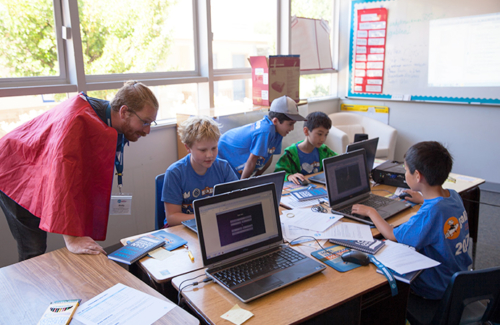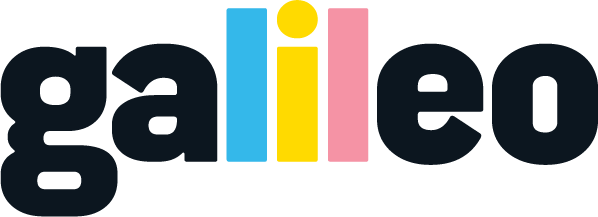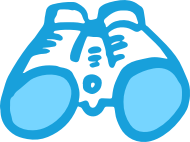Computer Science Summer Camps Offer High Impact Fun and Essential Preparation for the Future

By some estimates, when today’s elementary students enter the workforce, 65% will hold jobs that do not yet exist. With the rapid pace of technological advancement, parents and educators puzzle over how to best prepare kids with the knowledge and skills they will require for those jobs of the future. One thing is certain—technological innovation, from artificial intelligence and autonomous vehicles to interplanetary travel and genomic medicine, will continue expanding at an exponential rate.
The lives of 21st-century kids are inextricably intertwined with technology. They chat, read and shop with the aid of computers, not to mention all the possibilities for digital entertainment. And though kids of all ages are voracious consumers of digital content, from videos and music to games and apps, it takes specialized knowledge and skills to become creators. When kids were asked in one survey what school subjects they “like a lot,” the most popular choices were the arts and computer science. And just as reading, writing and arithmetic were once the cornerstones of early education, computer science is now a foundational skill for today’s kids. Although kids crave computer science and 90% of parents want them to study it, only 40% of schools teach programming. This has parents seeking other options like computer science summer camps that offer high impact fun while preparing kids for life in a computer-connected world.
Why Computer Science, Why Now
Data from Code.org reveals that although 58% of STEM jobs are in computer science, only 8% of STEM graduates finish with a degree in computer science. In addition, only 34 states and the District of Columbia count computer science as a high school graduation requirement. Though science and math are core subjects for every student, technology and engineering courses are not universally available. Clearly, there is a disconnect between supply and demand. Though many people think of it as an advanced course to be taken by older students, computer science and computational thinking are actually accessible to kids as young as preschool age. Waiting until high school to engage kids in the study of computer science seems to represent opportunities missed. To prepare kids with the skills they need for the tech-infused future and keep us on the cutting edge of innovation, computer science must be available to much younger kids.
Computational Thinking Is Essential
To ensure that kids are capable of becoming creators of games, apps and programs that will change the world, they must be introduced to computational thinking at an early age. An iterative method for problem-solving based on language and logic, it can be learned in a plugged or unplugged environment. Computational thinking elevates kids’ problem-solving skills to a new level as they deal with open-ended problems and apply their knowledge in real-world contexts. Puzzling through problems helps them take ownership of the process. Critical thinking and computer science skills become an empowering combination. These aspects of computational thinking are accessible to even the youngest kids:
- Decomposition: break down a problem or give step-by-step directions
- Algorithmic thinking: apply a solution path or set of steps to solve problems
- Abstraction: identify important information and set priorities
- Pattern recognition: see similarities and differences, recognize trends and repetitions
Learning simple tools at a young age and building upon them throughout childhood will enable kids to embrace technological advancement and participate in STEM careers.
Computer Science Summer Camps Offer Something for Everyone
Computer science summer camps offer kids the opportunity to immerse themselves in a wide variety specialized programs, from introductory to advanced levels. It’s at camp where they can hear the vocabulary of the discipline, experience the appropriate hardware and software, and learn to troubleshoot, while also balancing all of this with some good old camp fun. They can choose from many digital platforms that satisfy their particular interests. Galileo Summer Quest offers these computer science-oriented majors for campers entering 5th through 8th grades:
- 3-D Modeling & Printing – Learn professional design techniques, then use Tinkercad software to model custom prototypes and Flashforge Finder printers to produce them. Characters and structures produced are showcased at week’s end.
- Mobile Game Design – Create a unique mobile game using the Construct 2 game development program. When it’s ready for beta testing, trade games with other designers and give feedback. Then, join the end-of-week expo to introduce it to family and friends.
- Mod Design with Minecraft® – Minecraft enthusiasts will enjoy this session developed in partnership with Youth Digital. Edit graphics with GIMP before coding your redesigned game mods with Eclipse. Test and debug the game before presenting it at the session-end showcase.
- Robot Pet – This major pairs coding with electronics to design an animatronic pet. Learn to program Arduino-type microprocessors, then use ultrasonic sensors and servo motors to create a responsive pet that will show off its moves at week’s end.
- Virtual Reality – Create a unique story using 3-D world-building tool CoSpaces to design a custom VR environment. Add characters, code their actions and use Merge VR viewers and high-definition mobile devices to experience this new world as if you were standing in it.
For SF Bay Area campers, these additional camp sessions are available to kids entering 4th through 8th grades at Summer Camps @ Tech Museum of Innovation in San Jose:
- 3-D Video Game Design – Game enthusiasts use Kodu, a visual programming language, to build all aspects of a unique 3-D game creation.
- Code Fundamentals – Beginners will use Scratch to create simple games and animations as they learn the basics of coding before proceeding to an introduction to Java.
- Code Masters – Kids entering 6th – 8th grades with previous coding experience will take their skills to the next level with a full-day camp. Campers will select Python or Java to write programs that solve real-world problems.
- iOS App Development with Swift – Participants collaborate to develop and code their own mobile app using Xcode tools and Apple programming language, Swift. (Also available as a ‘girls only’ option.)
- Numerous other classes explore a variety of interests, including virtual reality, augmented reality, fitness trackers, autonomous robots and more.
With so many options available, kids can get an introduction to computer science or add to their repertoire of programming skills. The emphasis is on learning by doing in an atmosphere of supportive collaboration.
From Consumers to Creators of Digital Content
Through building block programming and simple robotics, even very young digital users can become makers or creators of content. Code.org has a wide range of one-hour learning modules to support a range of interests and experience levels. If your kids enjoy these short lessons, then a week (or more!) of summer camp is a powerful next step. In addition to helping kids acquire knowledge and skills that support computer science, Galileo camps encourage them to develop an innovative mindset. Kids continue to learn as they reflect on their experiences. To succeed in a rapidly changing environment, kids will need those qualities to be adaptable, resilient and persistent problem solvers who imagine creative solutions. They will be the hardware and software creators of tomorrow as they transfer and apply their skills in future contexts. What starts out as an actively engaging week at computer science summer camp, where kids immerse themselves in an activity they love, can become an experience that impacts their future in immeasurable ways.
You can find computer science summer camps throughout the San Francisco Bay Area, Southern California, and Chicagoland areas. Sign up for our mailing list to keep up-to-date with camp happenings and innovation resources, and if you are ready to enroll in camp, you can sign up here today.

